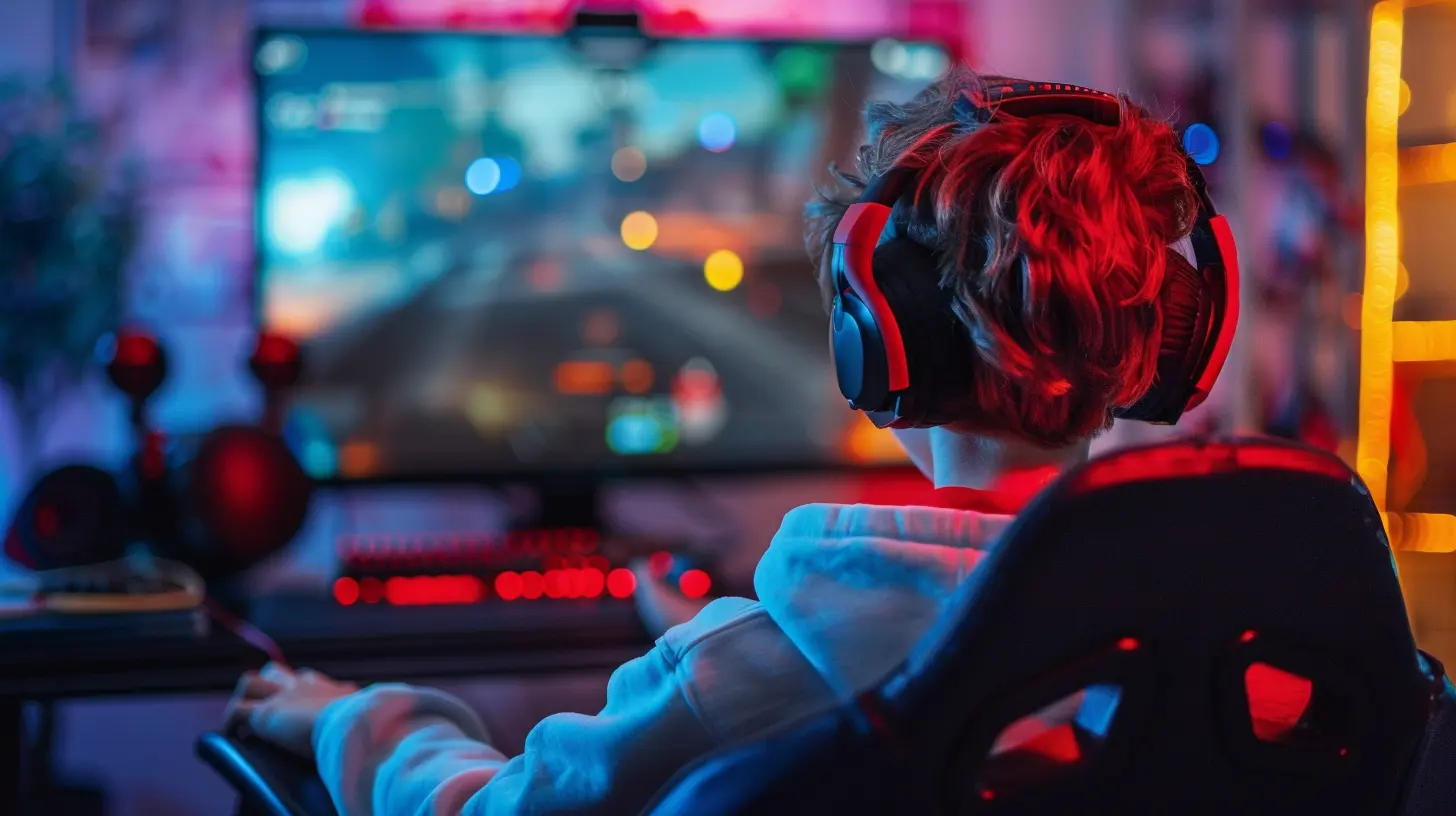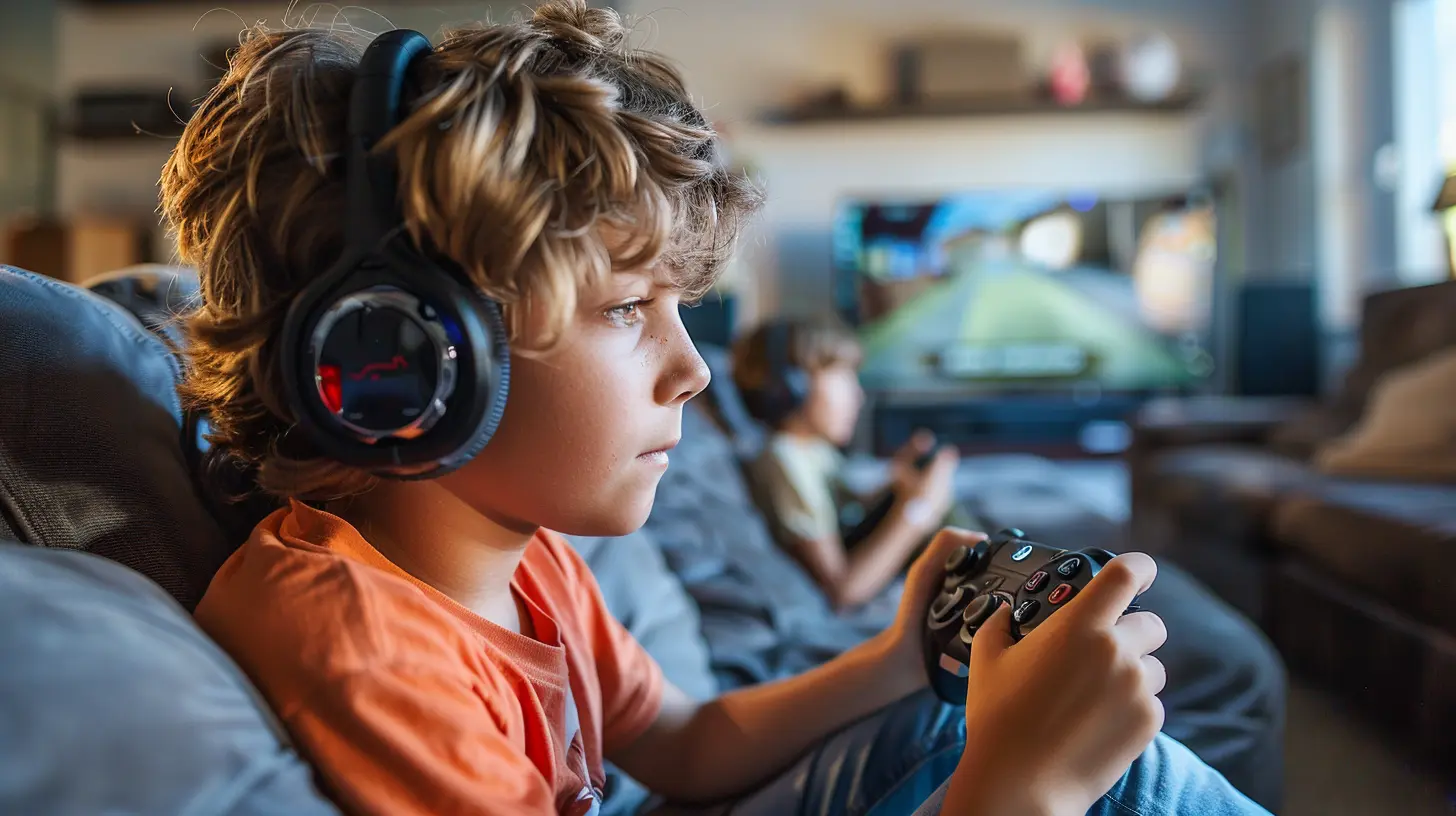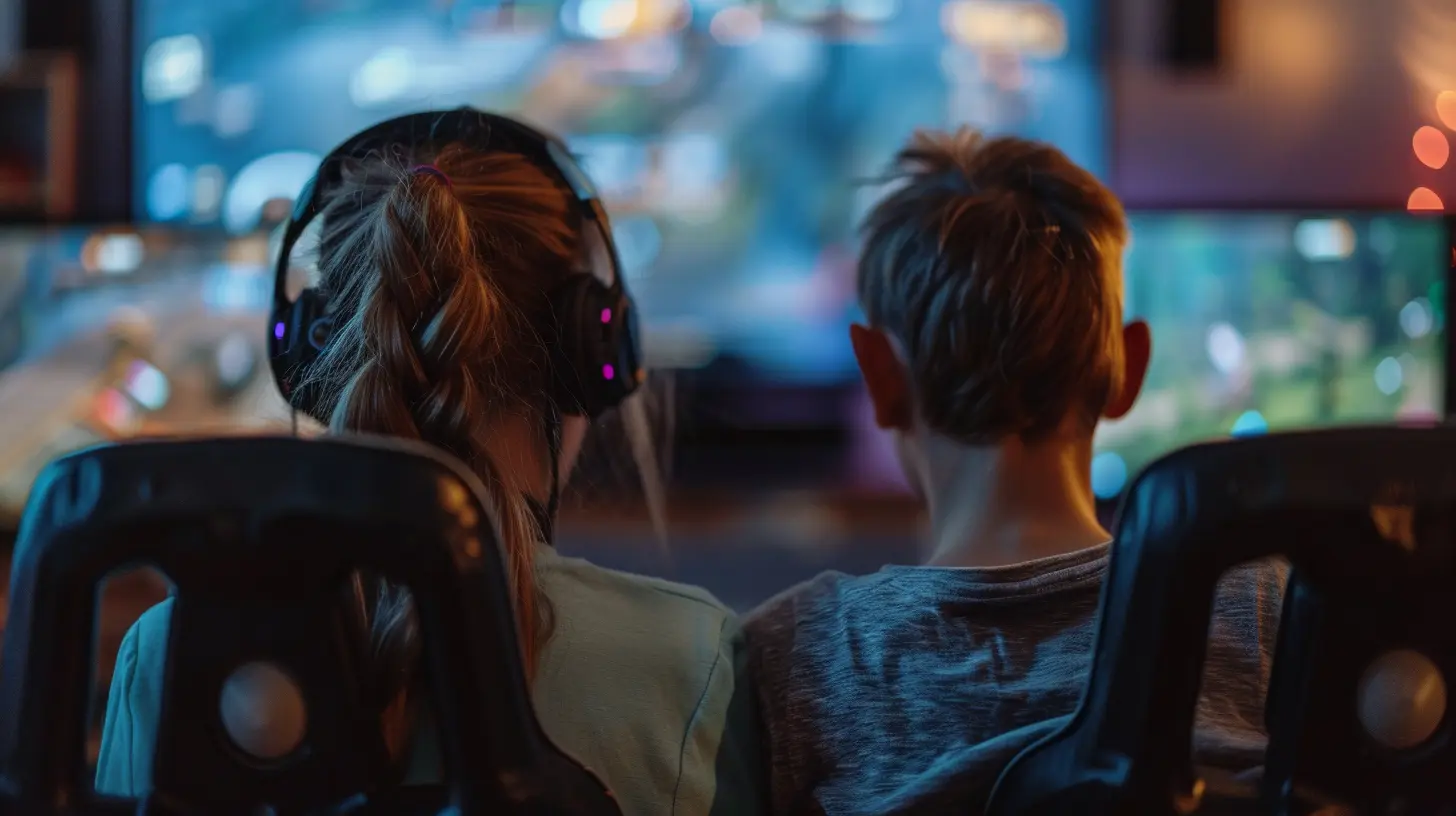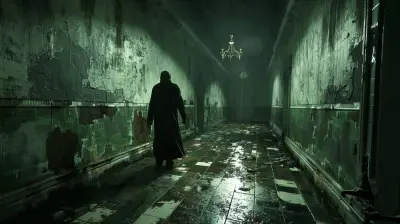How Simulation Games Teach Real-Life Skills to Teens
11 August 2025
Let’s just admit it—teens today are glued to their screens, furiously clicking away in the simulated worlds of The Sims, Stardew Valley, City Skylines, and the ever-mighty Flight Simulator. Now, while some adults might give these games the ol’ side-eye and grumble about “wasting time,” let’s flip the script. What if these games—yes, those virtual playgrounds with pixelated pets and pretend crops—are actually turning teens into low-key life ninjas?
Sounds crazy? Well, buckle up, my friend. We’re diving into how simulation games are sneakily teaching your teenager real-life skills that could outshine any dusty old textbook lesson.
Welcome to Sim-World: Where Virtual Life Is the Best Teacher
Simulation games are basically digital sandboxes where anything is possible—from managing cities to operating farms, flying planes to running restaurants. They create immersive environments that mimic real-life systems, often without the messy consequences. (Because hey, who wouldn't prefer a traffic jam in SimCity over the real I-95 on a Monday morning?)But here’s the kicker: while teens are out there designing dream homes or managing fake money, their brains are absorbing super-important life skills. Like a geeky Trojan horse of wisdom.
1. Budgeting Like a Boss: Virtual Wallet, Real Lessons
Ever blown your entire paycheck on pizza, then realized you couldn’t pay rent? Yeah, we’ve all been there. But in simulation games, the consequences of poor budgeting hit instantly.Take, for example, The Sims. That snazzy hot tub you bought? Now your sim can't afford a fridge. Whoops. Teens quickly learn they need to prioritize—do you really need a 12-room mansion, or should you buy a toilet first?
Skills learned:
- Managing virtual currency
- Understanding needs vs. wants
- Planning for future expenses
It’s finance class—but fun. And without the pop quizzes.
2. Time Management: Keeping It Together When Time Flies (Literally)
Simulation games often run in real-time or compressed time. You’ve got to juggle tasks, from cooking dinner to walking dogs to building a business empire—all before the in-game sun sets.In Stardew Valley, you’ve got just so many hours in a day to farm, mine, interact with villagers, and get enough sleep. Slack off too long? That crop of starfruit won’t harvest itself. Teens quickly learn how to prioritize tasks based on time, urgency, and energy levels.
Skills learned:
- Scheduling
- Prioritization
- Long-term thinking
It's like being a project manager—except your team consists of cows, chickens, and a moody blacksmith.
3. Critical Thinking & Problem Solving: Houston, We Have a Teenager Who Can Think
Simulation games are puzzle boxes wrapped in pretty graphics. They throw curveballs harder than a Little League all-star.Cities: Skylines teaches teens that placing a sewage pipe upstream from the water intake is a very bad idea (ew). Meanwhile, Kerbal Space Program demands real physics and engineering logic to get a ship into orbit without exploding in a fiery blaze of failure.
Skills learned:
- Cause and effect
- Analytical reasoning
- Experimentation through trial and error
Honestly, if a teen can figure out how to aerodynamically balance a rocket using fake physics, we probably owe them a scholarship.
4. Communication & Leadership: Because Bossing Around NPCs Builds Confidence
Some simulation games involve running teams, commanding squads, or interacting with AI characters. Teens must issue commands, negotiate trades, and sometimes even break up virtual fights (looking at you, The Sims drama lovers).In multiplayer simulation games like RollerCoaster Tycoon Multiplayer or Factorio, collaboration with real humans becomes key. Delegating tasks, listening to input, and working toward a common goal? That’s leadership 101.
Skills learned:
- Negotiation
- Delegation
- Social/emotional intelligence
Suddenly, your little introvert is taking charge in a virtual boardroom. Who said video games don’t build confidence?
5. Creativity Unleashed: From Pixel Art to Future Architect
You know that weird-looking skyscraper your teen built in Minecraft? That’s not just a pile of blocks—it’s a masterpiece of creativity, design, and spatial reasoning.Simulation games are insanely good at unleashing creative potential. Whether it’s customizing your dream zoo in Planet Zoo, designing roller coasters in Parkitect, or creating the perfect household in House Flipper—teens are tapping into their inner artist/designer/visionary/chaotic genius.
Skills learned:
- Aesthetic planning
- Innovation
- Working within constraints
And hey, it’s a lot cheaper than art school.
6. Responsibility & Consequences: No Pets Were Harmed in the Making of This Game
Ask any Sims player what happens if you forget to feed your sim baby or ignore your pet pig in Farming Simulator. Spoiler: It’s never pretty.Simulation games often force players to manage multiple systems—like health, hunger, energy, and happiness. Teens become responsible for their characters, businesses, and virtual environments. If they slack off, something suffers. Poop piles up. Cows go on strike. Customers leave bad reviews. It's a mess. But it teaches accountability.
Skills learned:
- Responsibility
- Task tracking
- Understanding consequences
It's like parenting… but the kid is pixelated and occasionally sets fire to the stove.
7. Career Exploration: Testing Out Dream Jobs (Minus the College Debt)
Wanna be a pilot? Try Microsoft Flight Simulator. Thinking of opening your own cafe? Cooking Simulator is calling. Future mayor? Let’s SimCity this.Simulation games offer teens a risk-free, commitment-free way to try out careers. They can experience the joys and stresses of various professions without the student loans or coffee addiction.
Skills learned:
- Industry-specific knowledge
- Hands-on virtual experience
- Realistic understanding of job requirements
It’s basically high school career day, but with better graphics and fewer awkward brochures.
8. Adaptability & Resilience: When Life Gives You Pixelated Lemons...
Things go wrong in simulation games. A lot. Your crops might die, your roller coaster might make visitors hurl, or your city might succumb to a zombie outbreak (hey, it's a risky world out there).But here's the thing—teens learn to bounce back. They restart, rethink, regroup. Simulation games subtly teach them that failure is just part of the process. And that’s a lesson even adults struggle with.
Skills learned:
- Coping with failure
- Flexibility in strategy
- Growth mindset
Resilience builds in their pixelated souls. They fall, they rise, they rebuild—with better sewer planning this time.
9. Environmental Awareness: Saving the Virtual Planet
Games like Eco, Farming Simulator, and Surviving Mars sneak in environmental lessons without being preachy. Want to bulldoze a forest to build a parking lot? Here’s what happens to your ecosystem. Overwater your crops? Watch the soil quality drop like your grades during finals week.Teens begin to understand the delicate balance between development and sustainability. And while it's all fun and games, those digital consequences hit harder than you'd expect.
Skills learned:
- Ecological balance
- Resource conservation
- Systems thinking
Who knew that planting virtual trees could teach your kid to care about the real Amazon?
10. Conflict Resolution (Because Even in Games, Someone Always Spills the Juice)
In life—and in The Sims—drama is inevitable. Whether it’s fighting with a neighbor over loud music or dealing with angry customers in Diner Dash, teens have to learn to de-escalate, repair relationships, and avoid metaphorical food fights.Skills learned:
- Empathy
- Problem-solving in relationships
- Emotional management
It’s like soft skills training… but with angry penguins in the mix.
Final Words: Defending the Digital Playground
Look, nobody’s saying your teen should spend 12 hours a day talking to digital goats. (Moderation is still king.) But the next time you see them deep in a virtual city or raising pixel chickens, consider this: they might just be rehearsing life itself.Simulation games, beneath their fun and sometimes absurd exteriors, are quietly shaping sharp minds. They’re giving teens tools to budget, lead, solve problems, design, and adapt. All while having a blast.
So instead of dragging them out of their gaming chair, maybe pull up another one. You might learn a thing or two from their virtual world hustle.
Who knows—your teen might just be the next mayor, chef, architect, or tech tycoon... all thanks to a game.
all images in this post were generated using AI tools
Category:
Games For TeensAuthor:

Madeleine McCaffrey
Discussion
rate this article
2 comments
Tatianna Cannon
This article highlights the invaluable lessons simulation games offer teens, from strategic thinking to teamwork. By engaging in realistic scenarios, players develop problem-solving skills and critical decision-making abilities that extend beyond the screen. It's fascinating to see how gaming can translate to real-world success!
November 22, 2025 at 4:34 AM

Madeleine McCaffrey
Thank you for your insightful comment! I'm glad you found the connection between simulation games and real-world skills compelling. It's amazing how such engaging experiences can shape our teens' future abilities!
Zayn McDougal
Simulation games are more than just entertainment; they empower teens with vital real-life skills! From problem-solving to teamwork, these virtual experiences foster creativity and resilience. Embrace the potential of gaming as a powerful tool for personal growth and development. Let the adventure begin!
August 13, 2025 at 3:30 AM

Madeleine McCaffrey
Absolutely! Simulation games provide engaging platforms for teens to develop essential skills like problem-solving, teamwork, and creativity, making them valuable tools for personal growth.


